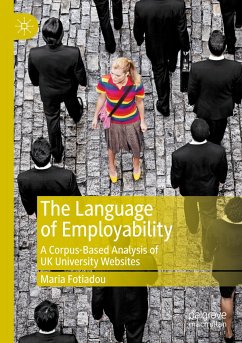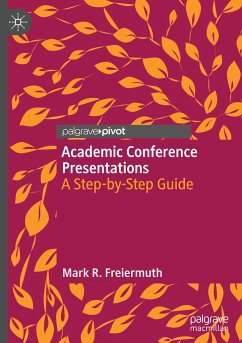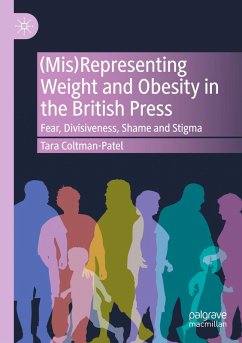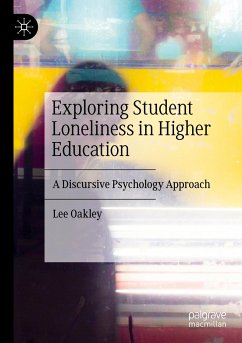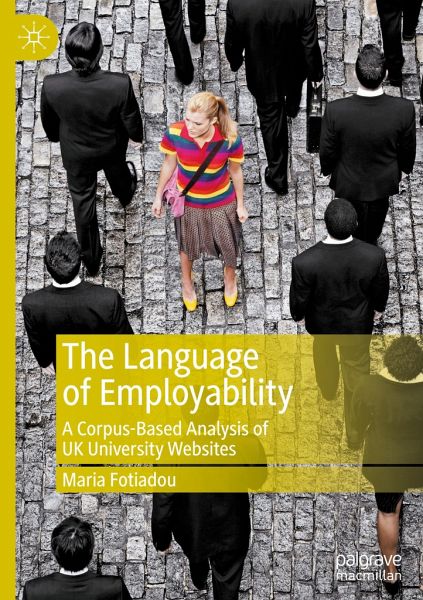
The Language of Employability
A Corpus-Based Analysis of UK University Websites
Versandkostenfrei!
Versandfertig in 6-10 Tagen
106,99 €
inkl. MwSt.
Weitere Ausgaben:

PAYBACK Punkte
0 °P sammeln!
This book employs a corpus-based Critical Discourse Analysis (CDA) methodology to analyse the language used by university careers services in the UK. Drawing on a corpus which includes the public-facing websites of careers services from 24 Russell Group and 34 Post-92 universities, the author highlights some of the potentially problematic 'common-sense' views and ideas that are currently promoted to students using these services. She argues that the language used by university websites promotes neoliberal ideology and encourages the denaturalisation of such language. This book will be of inter...
This book employs a corpus-based Critical Discourse Analysis (CDA) methodology to analyse the language used by university careers services in the UK. Drawing on a corpus which includes the public-facing websites of careers services from 24 Russell Group and 34 Post-92 universities, the author highlights some of the potentially problematic 'common-sense' views and ideas that are currently promoted to students using these services. She argues that the language used by university websites promotes neoliberal ideology and encourages the denaturalisation of such language. This book will be of interest to linguists, sociologists, education scholars, and scholars who are otherwise interested in the notion of employability.





